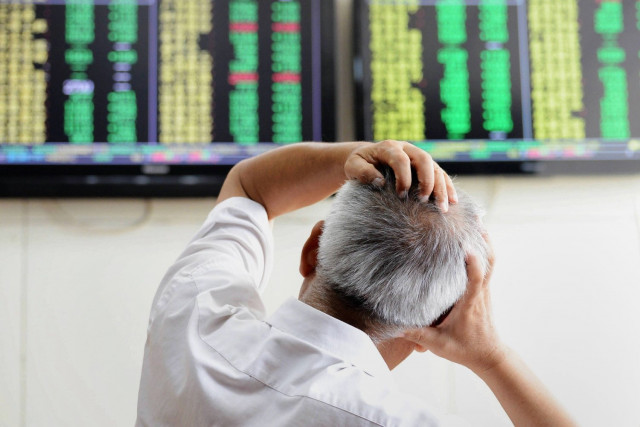KIBOR reaches close to 13-1/2-year high
Rate goes up despite inflow of huge liquidity into inter-bank market

The commercial banks’ benchmark six-month interest rate, at which they lend funds to each other in the Karachi money market, better known as Karachi Inter-bank Offered Rate (Kibor) – reached close to 13-and-a-half-year high at 15.68% on Wednesday.
The rate increased by 30 basis points during the day despite reports that the central bank had verbally asked the commercial banks in a meeting to cut the interest rate following supply of huge liquidity to the market through the open market operation (OMO).
The latest increase in Kibor came after the government showed its intention to increase taxes on banks’ profits in the budget, which would be presented in the National Assembly on Friday for the next fiscal year.
“Commercial banks have continued to increase the interest rate on financing among themselves and financing to the government in anticipation of a sharp rise in inflation and hike in the central bank’s key policy rate (on July 7),” Arif Habib Limited (AHL) economist Sana Tawfik said while talking to The Express Tribune.
The inflation reading is expected to surge to around 16% in June as the government has taken tough decisions like increase in petroleum product prices and power tariff.
The inflation may even soar to 17% if the government decides to further jack up fuel prices to clear the way for the resumption of IMF loan programme. In May, the inflation hit a 30-month high at 13.8%.
The central bank is expected to further hike its policy rate by 100-150 basis points in its next monetary policy statement, scheduled for July 7, to control inflation. The policy rate stands at an 11-year high at 13.75%.
The uncertainty about the revival of International Monetary Fund’s (IMF) $6 billion loan programme has forced banks to increase the interest rate.
The flow of foreign funding has slowed down in the wake of stalled IMF programme for the past one year. In this situation, the government has no option but to rely on domestic borrowing to finance the budget deficit, she said.
Read ‘High interest rate threatens SMEs’
Other multilateral and bilateral lenders including the World Bank and the Asian Development Bank as well as friendly countries are also waiting for the resumption of IMF programme before extending fresh financing to Islamabad.
Commercial banks see the largest demand for funds coming from the cash-strapped government. For the purpose, they manage liquidity flows through borrowing among themselves and also borrow from the central bank.
But this time around, it is more likely that banks are not facing a liquidity crunch, but are exploiting the uncertain situation.
Earlier, the central bank injected around Rs6 trillion in the past almost three weeks into commercial banks through the OMOs, while the government also recently repaid the matured debt worth around Rs600 billion to banks, it was learnt.
The commercial banks’ lending rate remains slightly higher than the inflation reading and the central bank’s policy rate.
But these days, the gap between the commercial banks’ lending rate and the central bank’s policy rate has widened, as commercial banks are exploiting the situation because the government has to borrow from them.
Earlier, the previous PTI government stopped borrowing from the central bank under a condition of the IMF loan programme. The resumption of borrowing from the central bank requires amendments to the relevant laws.
“The commercial banks’ rate will start coming down after the budget announcement and revival of the IMF loan programme,” Tawfik said.
Published in The Express Tribune, June 9th, 2022.
Like Business on Facebook, follow @TribuneBiz on Twitter to stay informed and join in the conversation.



















COMMENTS
Comments are moderated and generally will be posted if they are on-topic and not abusive.
For more information, please see our Comments FAQ